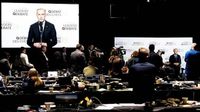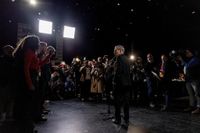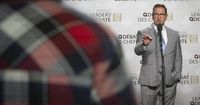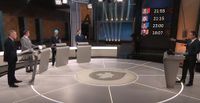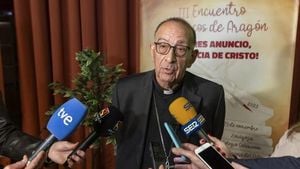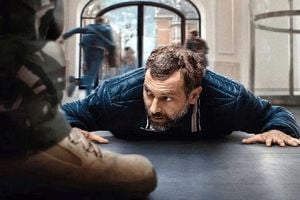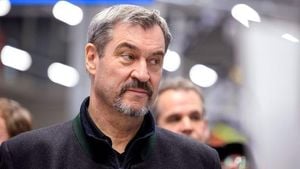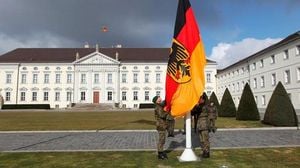The head of Canada's Leaders' Debates Commission, Michel Cormier, announced the cancellation of a planned question-and-answer session between party leaders and reporters after the English-language debate on April 17, 2025, due to heated exchanges involving representatives from the right-wing media outlet Rebel News. This decision comes amid growing criticism of the commission following its controversial handling of media access during the ongoing federal election campaign.
On April 16, 2025, after the French-language debate, Rebel News and other right-wing media outlets dominated the post-debate Q&A session, raising concerns about the fairness and balance of media representation. Cormier, speaking on CBC's Power & Politics, revealed he was not aware that Rebel News had registered as an official third party with Elections Canada. This registration allows them to fundraise and spend money on advertisements aimed at influencing voters, a fact that may have changed the commission's approach had they known.
"I wasn't aware of that," Cormier stated, expressing regret that the commission could not guarantee a proper environment for the media scrum. The commission has faced scrutiny for allowing Rebel News, which has been involved in political advocacy and has previously faced legal challenges regarding its journalistic status, to have a significant presence at the debates.
Rebel News, alongside a group called ForCanada, has been actively campaigning against Liberal Leader Mark Carney, using provocative messaging that suggests he has been compromised by foreign entities like China and the World Economic Forum. This has raised ethical questions about their role in the media landscape, especially given their registration as a third-party advocacy group.
During the French-language debate, Carney faced questions from various media outlets, including Rebel News. One question from a Juno News reporter highlighted concerns about Carney's campaign strategy, which some accused of sidelining individuals associated with former Prime Minister Justin Trudeau. Carney responded to inquiries about gender identity, stating, "In terms of sex, there are two," which sparked further debate.
NDP Leader Jagmeet Singh, however, refused to engage with Rebel News representatives, accusing them of spreading disinformation. Singh's stance reflects a broader concern among some political leaders about the impact of certain media organizations on public discourse.
In response to the growing influence of right-wing media, Cormier noted that the commission was bound by court decisions that prevented them from excluding such outlets from accreditation. "We’re under court orders and precedents to accredit their journalists," he explained. This legal framework stems from previous cases where Rebel News successfully challenged the commission's attempts to deny them accreditation based on their advocacy work.
Ezra Levant, the founder of Rebel News, commented on the situation, stating, "Some of our journalism is advocacy. Some of it isn’t." He emphasized that the courts had previously upheld the outlet's right to participate, despite the commission's concerns about their journalistic integrity.
The commission's decision to allow Rebel News and other right-wing outlets to dominate the question-and-answer sessions has been criticized by various stakeholders, including the Canadian Association of Journalists. They expressed frustration that the commission did not consult them on media access rules, despite requests for input on shaping the criteria.
The Green Party, which was disinvited from the debates, also voiced concerns about the perceived imbalance in media representation. They pointed out that while Rebel News and True North received press credentials, their party was silenced, leading to questions about the commission's decision-making process. Cormier defended the commission's actions, asserting that the Green Party had misrepresented its candidate strategy by claiming to run in more ridings than it ultimately did.
As tensions escalated within the media center, a verbal conflict broke out between Rebel News staff and other reporters, prompting intervention from RCMP officers. Cormier later met with Levant to discuss the situation, and Levant claimed they found "common ground." He remarked, "Yesterday, I think the independent journalists were a bit too independent," suggesting that there might have been a need for more cohesion among the various media representatives.
The cancellation of the post-debate scrum marks another setback for the Leaders' Debates Commission, which has faced mounting criticism for its handling of media access and the overall organization of the debates. Cormier acknowledged the need to review the situation and promised to outline recommendations for improvement moving forward.
Looking ahead, party leaders are set to face off in an English-language debate on April 17, 2025, amid ongoing discussions about the role of media in shaping the electoral landscape. As the campaign progresses, the Leaders' Debates Commission will need to navigate the complexities of media accreditation and public perception, ensuring that all voices are heard while maintaining the integrity of the democratic process.
